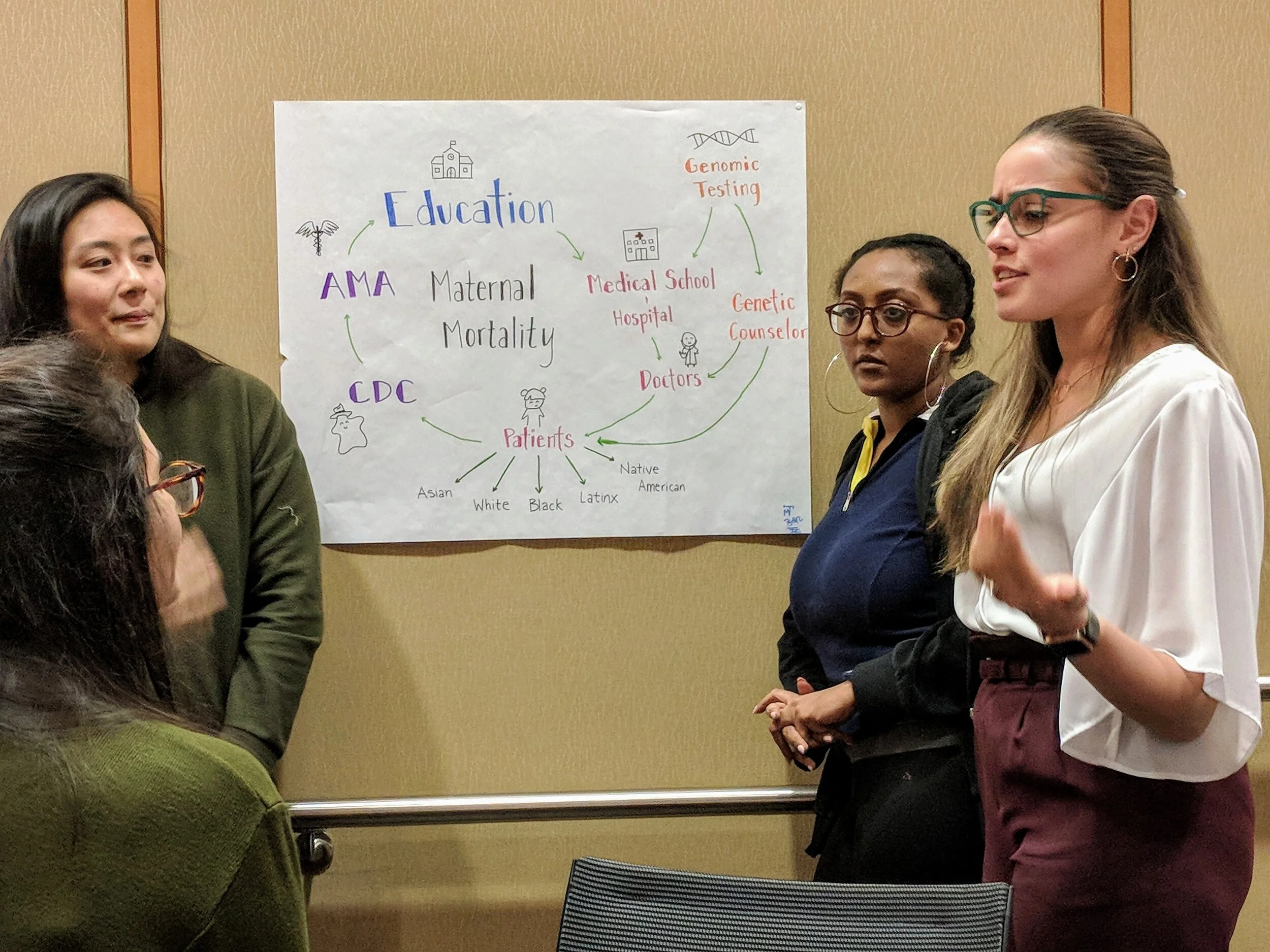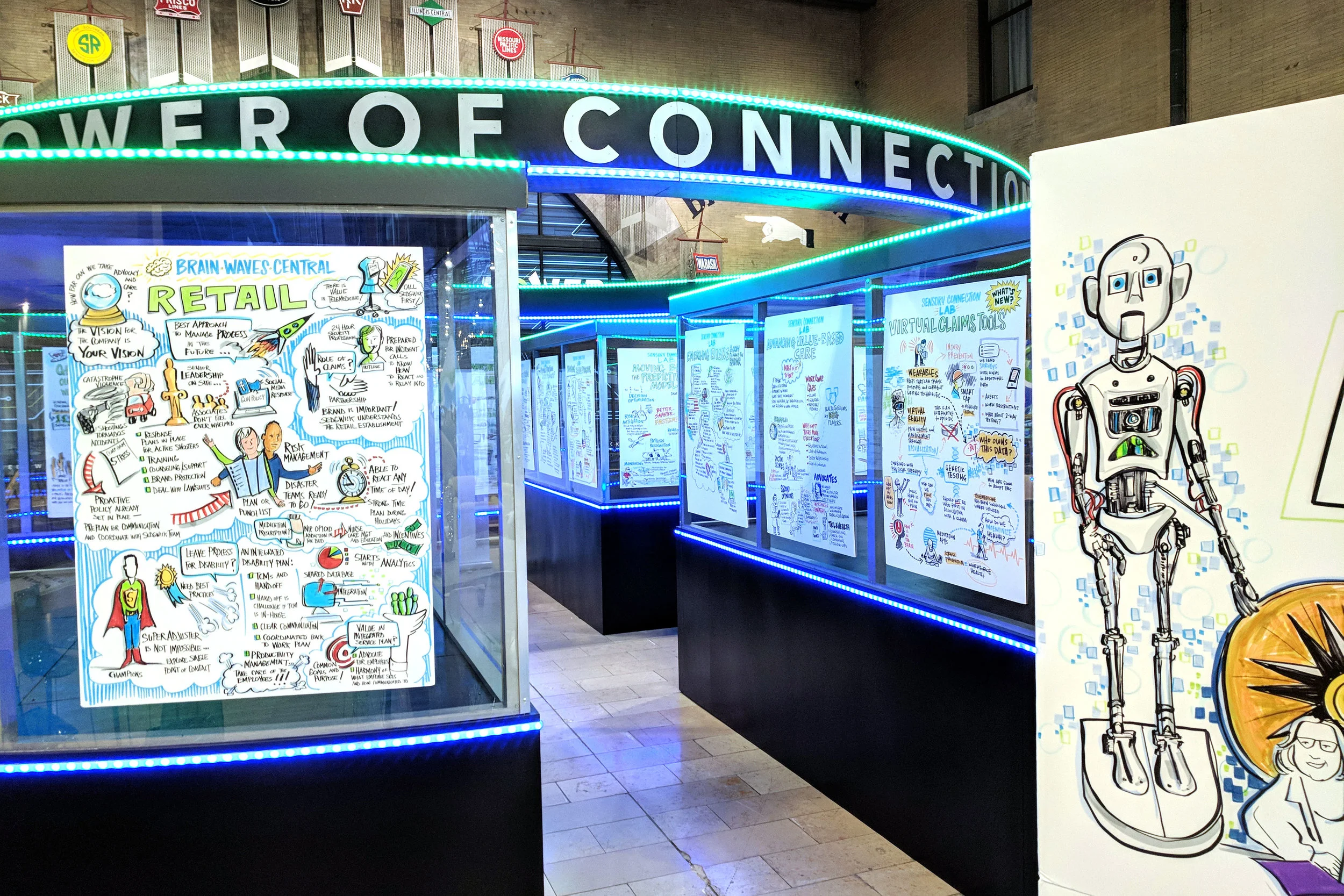Native American Incubator
/What would it take for you to start a business in a landlocked nation with little running water or electricity, limited access to healthcare, few paved roads, and anywhere from 25% to 60% unemployment rate?
This week, Alphachimp was honored to play a small role in a two-day marketing and branding workshop for indigenous entrepreneurs, held in capital of the Navajo People in Window Rock, Arizona.
In any business environment, start-ups with great ideas, but little capital, lack the support networks they need to be successful.
In tribal lands, however, a lack of infrastructure, near non-existent financing, a slow-moving, unresponsive political system, and a history of exclusion has isolated Native people from national and global economies and stifled economic growth on the reservation.
The Native American Business Incubator Network (NABIN) helps local entrepreneurs confront those challenges of starting businesses on the reservation.
In 2008, The Economist dubbed the Navajo Nation “Capitalism’s last frontier” highlighting the barriers and challenges inhibiting residents from starting or sustaining a business on tribal lands.
In 2010, the unemployment rate on the Navajo Nation, which crosses Arizona, New Mexico, and Utah, was estimated between 40 and 70 percent, significantly above the U.S. average of 9.6 percent.
Despite resource-rich land and a viable workforce of 180 thousand people, the growth of Navajo small businesses is less than half the U.S. average growth rate. As with most Native People in North America, the Navajo Nation also faces significant social challenges. Although improving slowly, 50% of homes lack modern plumbing and 20% lack electricity.
Due to drought, geography, and pollution from urainium and other mining activities, 40% of the 173,000 residents of Navajo Nation lack access to clean, safe drinking water, a condition known as water poverty.
Heather Fleming who spent her childhood down on “The Rez” and later founded of Catapult Design notes:
“Many of these socioeconomic and environmental problems could be addressed through local business service providers, yet the lack of an entrepreneurial ecosystem and mentor networks on the Navajo Nation makes tackling the barriers a daunting task for people who may be inspired to start a business.”
NABIN launched the Create + Elevate workshop to serve of the six winners of the Native Start-Up initiative, a year-long program designed to move a handful of indigenous entrepreneurs from idea to implementation, and, ultimately, business success.
Announced at the 2017 ChangeLabs in Tuba City, AZ, the six entrepreneurs are “motivated Native American individuals, teams, and organizations with a sustainable model for creating change in Southwestern tribal communities.”
As NABIN Lead Business Counselor, Jessica Stago points out:
“Our people have always been entrepreneurs, trading our goods, customs, and artwork with tribes throughout the southwest. With a little bit of support, we can cultivate that spirit.”
These NABIN start-ups aim to solve a variety of problems and services, including foot care for diabetes patients, physical therapy, early child education, land conservation, automotive services, ecotourism, food insecurity, and creating a “Craigslist for Native Peoples.”
Each business owner is squarely in either the idea phase, startup phase, or mid-growth phase, and receive:
- an infusion of $5000 in capital
- a year of business incubation support
- access to business mentors
- business counseling
Daniel Vandever, Communications Director of Navajo Technical University presents to Start-ups.
The marketing and branding workshop drew upon the talents and design skills of both native and non-native designers to work side-by-side and rapidly create whatever was needed whether a business name, brand identity, logo, color scheme, website, business cards or all of the above.
The workshop participants and their design coaches.
- BoldBrew, a communications firm in Durango, Colorado
- Bowen Creative, a Nob Hill creative firm in Albuquerque, New Mexico
- Catapult Design, a Denver-based nonprofit design firm serving socially-driven organizations
- Daniel Vandever, Communications Director of Navajo Technical University
- Dibé Nitsaa, a Diné (Navajo) graphic design company
- Randall Barton, aka Randy Boogie, Diné sound artist, painter, and DJ
- Tyson Powless, graffiti artist and designer based in Shiprock, New Mexico
- The founder of the Women of the Navajo calendar, focusing on the traditional values of Navajo heritage, modesty, and pride.
- Yahuaca Knowledge Distribution, a consultancy that brings indigenous voices to the forefront of policymaking and economic development.
To learn more about the winners of the Native Start-Up Program, visit www.nativestartup.org










